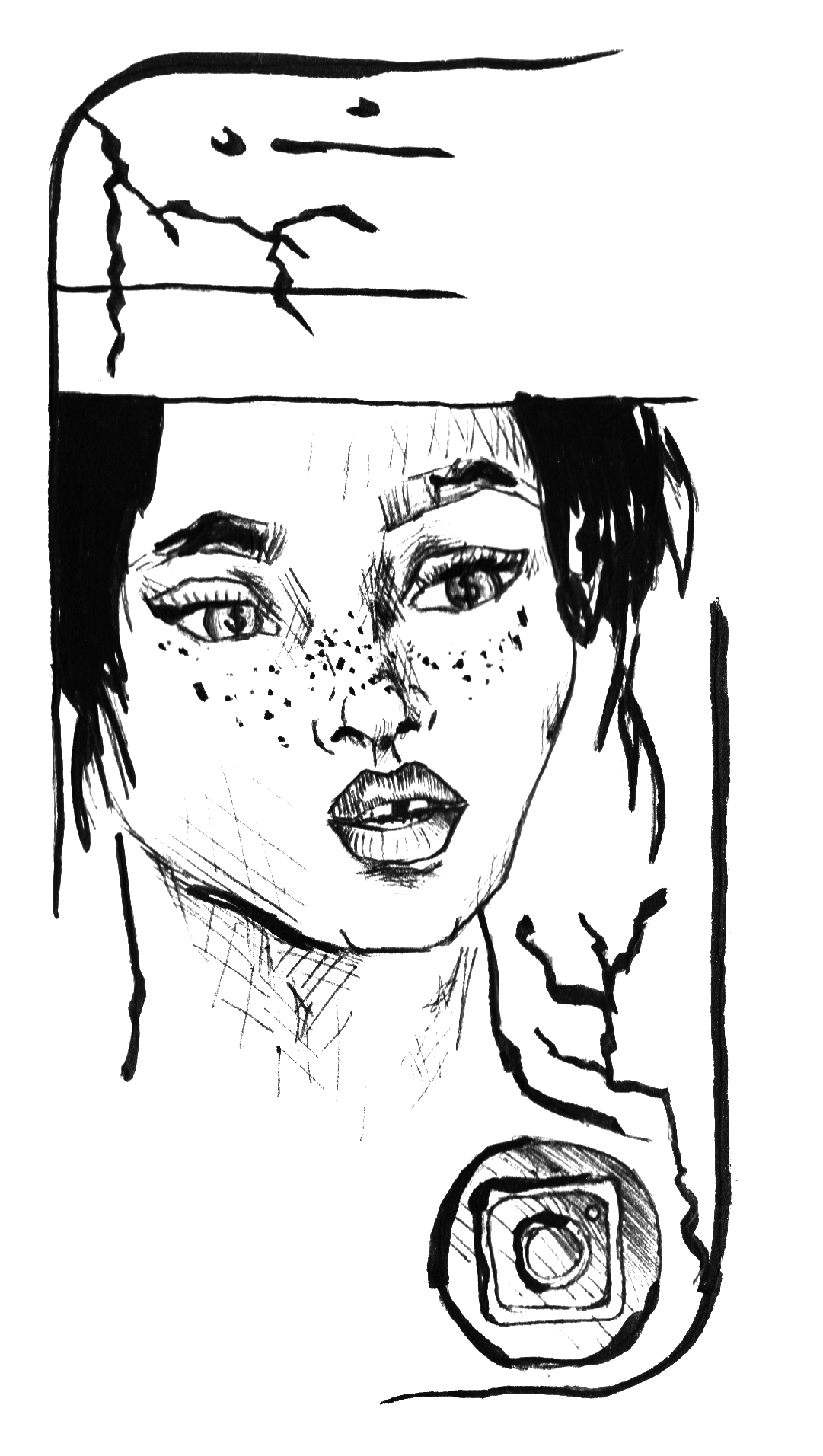The toxicity of social media influencers
October 19, 2018
 This
piece represents the opinion of the author
.
This
piece represents the opinion of the author
.
 Phoebe Zipper
Phoebe ZipperWake up, open Instagram and let the day unwrap itself. Slowly, painfully, moving from picture to picture. Analyze the perfection that lies behind the smiles of the girls, as they wear branded tights and a sports bra sponsored by some ultra-expensive company. Move to another photo, this time to find a perfectly-ironed dress, accentuating the curves of someone’s body, only to be followed by a motivational quote and a small reference to the brand that made the dress. And the last photo, before the anxiety starts kicking in, is a man, topless, showing his god-like body to the camera, flashing a bright smile and quoting a message taken from a book teaching you how to get rich in ten days. “Just push yourself harder!”
These are the influencers, the people who earn their living off of Instagram and other various social media tools by promoting brands. They have the products in their hands; they are the ones being held by the products. They need to smile, to pose, to show what the public wants and to make everything look desirable and utopian. Their day is not average; it is fantastic. It is not full of traffic jams or rude people entering the bus in a hurry. They live the perfect lifestyle, have the best food on the table, the coffee from that fancy bar that just opened in town and the clothes from designer brands that most of us cannot afford. We can be thankful to look at them and hopeful that one day we might reach that point too. At that time, we will be able to pose with the watch covering most of the shot to show others that “we have made it.”
Until then, we are trapped in this world, where we have to experience emotions other than happiness. We are forced to live here and to accept the fluctuations we encounter, to understand that today might not be the day, maybe not even tomorrow—and who knows when we will get back to laughing. In the outside world, the influencers make their game, showing how perfect life can be: happy and without worry. They want to influence us, but the damage their actions might cause is undervalued. Their inaccurate depiction of reality brings anxiety into our minds. We lose ourselves, our unique traits that differentiate us from others, only to join the herd and to aspire for that lifestyle that we have seen an endless number of times on Instagram.
It makes us question the beauty of our bodies and of our clothes-of-choice. It slowly bleaches us, removing any trace of bright color that used to shine before from miles away, leaving only a blank canvas on which the influencers and the brands will paint in black according to their own taste.
And we let them do it, and we admire them and some of us even take them as role models. They Have Made It. We let them play their game, but at times it is good to step back and to look at things from our own eyes, not from the eyes that they have tried to stick in our orbits. It is important to realize that there is more that lies behind the picture that probably took a good amount of time to be shot and edited, with a long list of decisions on the ideal posture of the body, to make it look the most desirable.
As outsiders, though, we must understand that influencers are human at the end of the day—the version they put online is not a real one. Influencers’ photos are just images that sell well. These photos’ popularity fills influencers’ desires to be appreciated by many people.
As the presence of the influencers may downgrade our self-esteem, we can take action. It needs to be understood that the pictures and videos they post are made to reach a broader audience, promote a brand, sell it and receive some remuneration in the end. They do it the way the brands want, they play their game and show what the brands want, behave the way the brands want, while living with pseudo-independence over their actions.
However, we have a choice of what to consume. Deciding to unfollow them or to abstain from Instagram might be the right choice. Just raising your eyes when you walk might help you better understand reality. Perfection is not an objective ideal to which one should aspire. It is a construct by society, and as much as we have helped build it, we can help destroy it. Either piece by piece, or just by smashing it with a hammer.
“The Less You Show, The More You Have, And Let That Be A Lesson.” – Princess Nokia
Radu Stochita is a member of the class of 2022.

Comments
Before submitting a comment, please review our comment policy. Some key points from the policy: